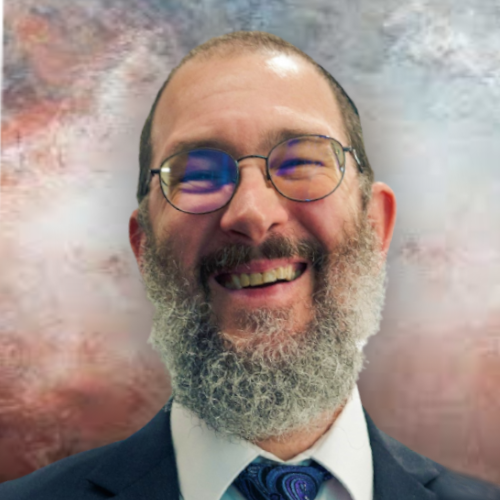
This is the story of a bird's nest. But it's not the column I planned to write. Instead of ranting about the baffling behavior of human beings, I'm compelled to call myself out for violating one of my own cardinal principles.
I've long held mixed feelings about the word non-judgmentalism — that overused and misapplied staple of political correctness. We make judgments all the time. And well we should, to recognize virtue, evaluate opportunities, assess danger and keep our moral compass evenly calibrated.
What non-judgmentalism really means is this: the discipline to resist prejudgment, snap judgment and stereotyping. This is why the first ethical lesson taught by the sages of ancient Judea is to be "deliberate in judgment."
And that's where I fell short myself. Which brings us to the bird's nest.
Each spring, my wife arranges three hanging flower baskets on our front porch. This year, toward the end of May, the bird's nest appeared in one of them, meticulously and elegantly fashioned as if by some avian apprentice of Frank Lloyd Wright.
Its architecture was truly magnificent. But soon we faced a perplexing question: Where were the birds who built it?
We never saw them, neither during construction nor after. It was as if the intricate structure had apparated into our garden only to remain uninhabited and unused. Day after day went by. No birds. Nothing.
Why on earth would a creature go to all the trouble of building a house and then not live in it? All I could conclude is that animals are as mercurial as humans. I can't explain the latter; why should I expect to understand the former?
So many questions about human behavior relentlessly plague me:
— Why do prospective clients contact me, ask for a meeting, then never respond when I message them back?
— Why do people boldly proclaim their opinions on social media when they've made no effort to learn the facts?
— Why do voters enthusiastically endorse candidates they know are unqualified simply because they consider the opposing candidate even worse?
— What makes people ruin a perfectly good pizza by putting pineapple on it?
I concluded that building a house only to abandon it without moving in is pretty much par for the course. An entire week passed by, after which my wife finally had enough. "If the birds aren't using it," she said, "get rid of it. It's taking space away from my flowers."
The next day, I opened the front door to the flutter of wings and saw a blur of motion. Almost reflexively, I glanced into the flower basket. And there, in the center of the nest, lay a single, crystalline blue robin egg. A few days later, three more took up residence beside it.
Apparently, the birds had not deserted their nest after all. Just the opposite: The nest was never intended as a place for them to live. It was a home to raise their young.
With a single new piece of information, the mystery of the nest now made perfect sense. It was my lack of context, perspective and imagination that led me to make assumptions best characterized by this week's addition to the Ethical Lexicon:
Injudicious (in*ju*di*cious/ in-joo-dish-uhs) adjective
Describing a decision void of judgment or not well thought out; unwise or imprudent.
Indeed, many human behaviors are genuinely inexplicable. And because they are, we justify ascribing irrationality any time our perceptions fail to conform to our expectations.
But as the sages teach us, we have an ethical duty to reserve judgment, to consider what information we're lacking, to guard against injudicious assumptions by suspecting our own objectivity and giving the benefit of the doubt. Rather than worrying about being non-judgmental, let's just worry about being smart.
The Buddhist patriarch Seng-Ts'an warned, "The struggle between for and against is the mind's worst disease." We can and should hold strong opinions. But our opinions hold water only after we're sure we have all the facts, and only after we've diligently reasoned our way closer to the truth.
Previously:
• When Seeking Peace, Don't Release the Dogs of War
• Greta Thunberg Sails Toward Moral Hypocrisy
• Checking More Boxes Is Not the Solution
• Why Sometimes NOT Seeing Is MORE Believing
• A Healthy Diet for the Brain Promotes Ethical Clarity for the Mind
(COMMENT, BELOW)
Rabbi Yonason Goldson graduated from the University of California at Davis with a degree in English, which he put to good use by setting off hitchhiking cross-country and backpacking across Europe. He eventually arrived in Israel where he connected with his Jewish roots and spent the next nine years studying Torah, completing his rabbinic training as part of Ohr Somayach's first ordination program. After teaching yeshiva high school for 23 years in Budapest, Hungary, Atlanta, Georgia, and St. Louis, Missouri, Rabbi Goldson established himself as a professional speaker and advisor, working with business leaders to create a company culture built on ethics and trust. He has published seven books and given two TEDx Talks, is an award-winning host of two podcasts, and writes a weekly column for Fast Company Magazine. He also serves as scholar-in-residence for congregations around the country.


 Contact The Editor
Contact The Editor
 Articles By This Author
Articles By This Author